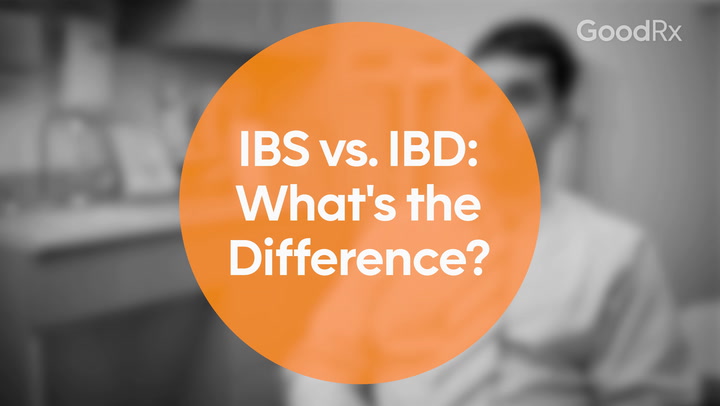
Why Ipecac Syrup No Longer Belongs in Your Medicine Cabinet
Key takeaways:
Ipecac syrup is a medication used to induce vomiting. In the past, ipecac syrup was recommended to help treat poisonous substance ingestions.
Ipecac syrup is no longer routinely recommended for poisonous substance ingestions. It hasn’t been shown to improve outcomes in these situations.
If you think you or someone you’re with has been exposed to a poisonous substance, contact the National Poison Control Center at 1-800-222-1222. If symptoms are severe (like having trouble breathing), call 9-1-1 immediately.

Approximately 6,000 people call a U.S. Poison Control Center every day. These centers offer free guidance and expertise for people who may have been exposed to something poisonous.
In some cases, poison control experts may recommend that you watch for possible side effects at home. In other cases, they’ll recommend immediate emergency care. But one thing you’ll never hear them recommend is ipecac syrup. Once used to induce vomiting, it’s no longer considered to have any acceptable medical use.
But why is a medication that was once used to help treat poisonings no longer recommended? And what are the risks?
What is ipecac syrup?
Ipecac syrup is a medication that causes vomiting. It was previously used to help empty the stomachs of people who had ingested a poisonous substance. A poison is any substance that can cause harm to people and animals. This includes prescription and over-the-counter (OTC) medications taken in incorrect amounts. It can also include medications taken the wrong way (like swallowing eye drops, for example). Plants and everyday household products can also be poisonous.
Ipecac syrup comes from the roots of two plants: Cephaelis acuminata and Cephaelis ipecacuanha. The active chemicals in ipecac syrup that cause vomiting are emetine and cephaeline.
How does ipecac syrup work?
Ipecac syrup causes people to vomit by irritating the stomach lining. It also sends signals to an area of the brain that can cause vomiting. This part of the brain is called the chemoreceptor trigger zone. It takes most people about 20 to 30 minutes to start throwing up after taking ipecac syrup.
Read more like this
Explore these related articles, suggested for readers like you.
Why isn’t ipecac syrup recommended anymore?
In 1997, the American Academy of Clinical Toxicology (AACT) recommended against the routine use of ipecac syrup in poison ingestions.
There were a few reasons for this recommendation, including:
There’s no evidence that ipecac improves outcomes in people who’ve ingested a poisonous substance.
The effects of ipecac syrup aren’t consistent. The effectiveness of ipecac syrup varies from person to person. It also becomes less effective if not taken right after swallowing a poisonous substance.
Giving ipecac may delay or lower the effectiveness of other therapies. This includes activated charcoal or whole bowel irrigation.
The AACT noted that ipecac syrup should be used only if it can be given within 60 minutes of a poison ingestion. But even then, the benefits aren’t clear.
The American Academy of Pediatrics (AAP) came out with a similar statement in 2003. They recommended against the use of ipecac syrup at home. This was different from what the AAP previously recommended. They used to recommend storing ipecac syrup at home in case your child ingested a poisonous substance. But there was a lack of evidence showing that ipecac syrup improved outcomes. The AAP also called on anyone who currently had ipecac syrup in their home to dispose of it.
What are the risks of ipecac syrup?
People taking ipecac syrup may experience the following common side effects:
Prolonged vomiting lasting longer than 1 hour
Fever
Tiredness
Sleepiness
Diarrhea
Feeling irritable
In rare cases, ipecac syrup can cause more severe side effects like:
A tear in the lower esophagus or upper part of the stomach (Mallory-Weiss tear)
A tear in stomach (gastric rupture)
An infection from food or liquid in the airways (aspiration pneumonia)
Air buildup in the space between the lungs and heart (pneumomediastinum)
Another concern with ipecac syrup is that some people may overuse it to lose weight. People with bulimia (a type of eating disorder involving throwing up) may use the syrup to induce vomiting.
This is dangerous because people who use too much ipecac syrup may develop severe complications, including:
Heart problems
Mallory-Weiss tears
Diarrhea
Electrolyte abnormalities
Dehydration
Muscle breakdown
If you or someone you know struggles with an eating disorder, help is available. Call or text the National Eating Disorders Association's helpline at 1-800-931-2237 for support and resources in your area.
Who should avoid ipecac syrup?
Ipecac syrup is generally not recommended for anyone. But some people should absolutely avoid using ipecac syrup. This includes people who:
Are at risk of not being able to breath properly
Swallowed chemicals that can cause burns
Have a physical weakness that may be worsened by vomiting
Ingested a poisonous substance over 1 hour ago
Are there any alternatives to ipecac syrup?
People who have ingested poisonous substances may need treatment. These treatments should be given under medical supervision and shouldn’t be tried at home. For example, activated charcoal can be used to treat some poisonings. This includes prescription or OTC medication overdoses. It’s often given in the emergency room by trained, medical professionals. It works by attaching to the ingested poisonous material or medications in the gastrointestinal tract. This stops the poisonous substance from reaching the bloodstream.
A procedure called whole bowel irrigation can also be used to treat some cases of poisoning. It works by introducing large volumes of medications like polyethylene glycol 3350 (Golytely, NuLYTELY) to clean out your gastrointestinal tract. It can be swallowed or given through a feeding tube. But activated charcoal and whole bowel irrigation aren’t for everyone. For example, neither should be used in people who are unconscious or have bowel obstruction.
Depending on the poisonous substance ingested, antidotes may also be available in hospitals. For example, acetylcysteine (Acetadote) can be used to treat an acetaminophen (Tylenol) overdose. And calcium injections can treat a calcium channel blocker overdose.
If someone you’re with collapses, has a seizure, or is having trouble breathing, you should call 9-1-1 immediately. If symptoms are not severe yet, and you think you or someone you know may have ingested a poisonous substance, call the National Poison Control Center right away by dialing 1-800-222-1222. Don’t wait for symptoms to appear. You can also get help online.
The bottom line
Ipecac syrup used to be recommended as a home remedy for poison ingestions because it causes vomiting. But ipecac syrup is no longer recommended for any medical use. This is because there’s limited evidence showing that ipecac syrup improves outcomes for people who’ve ingested a poisonous substance.
Why trust our experts?



If you think you or someone you’re with has ingested a poisonous substance, call the National Poison Control Center right away by dialing 1-800-222-1222. You can also get help online. If symptoms are severe (including seizures or trouble breathing), call 9-1-1 immediately for emergency care.
References
American Academy of Clinical Toxicology, et al. (1997). Position statement: Ipecac syrup. Clinical Toxicology.
Benzoni, T., et al. (2021). Ipecac. StatPearls.
California Poison Control System. (2022). Antidotes.
Chakraborty, R. K., et al. (2022). Calcium channel blocker toxicity. StatPearls.
Committee on Injury, Violence, and Poison Prevention. (2003). Poison treatment in the home. Pediatrics.
Greenfeld, D., et al. (1993). Ipecac abuse in a sample of eating disordered outpatients. International Journal of Eating Disorders.
MedlinePlus. (2020). Mallory-Weiss tear.
MedlinePlus. (2020). Pneumomediastinum.
MedlinePlus. (2021). Aspiration pneumonia.
National Capital Poison Center. (n.d.). Ipecac - Don't use it..
National Capital Poison Center. (n.d.). National Capital Poison Center.
National Capital Poison Center. (n.d.). Poison Control help when you don't want to call.
National Capital Poison Center. (n.d.). webPOISONCONTROL.
National Capital Poison Center. (n.d.). What is a poison and what is Poison Control?.
National Eating Disorders Association. (n.d.). Contact the helpline.
Silber, T. J. (2005). Ipecac syrup abuse, morbidity, and mortality: Isn't it time to repeal its over-the-counter status?. Journal of Adolescent Health.
Silberman, J., et al. (2022). Activated charcoal. StatPearls.
Soto, P. (n.d.). Activated charcoal. National Capital Poison Center.
Thanacoody, R., et al. (2014). Position paper update: Whole bowel irrigation for gastrointestinal decontamination of overdose patients. Clinical Toxicology.
Vale, J. A., et al. (1986). Syrup of ipecacuanha: Is it really useful?. British Medical Journal.





























